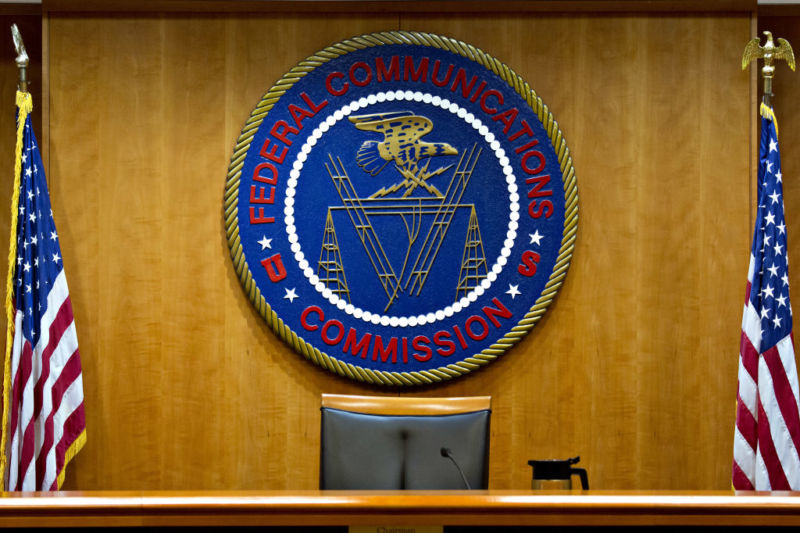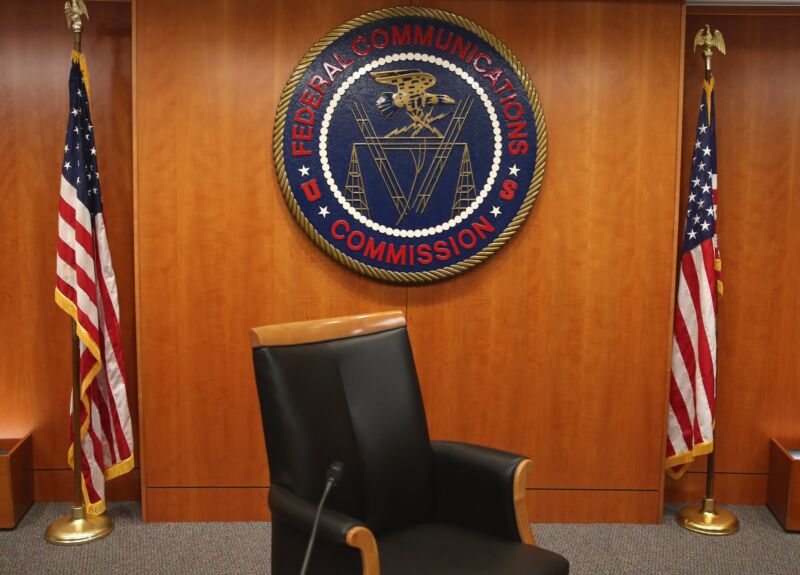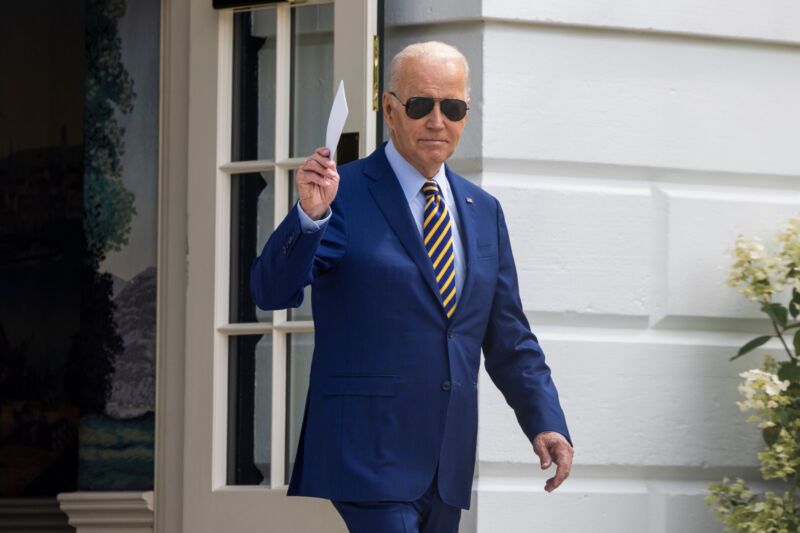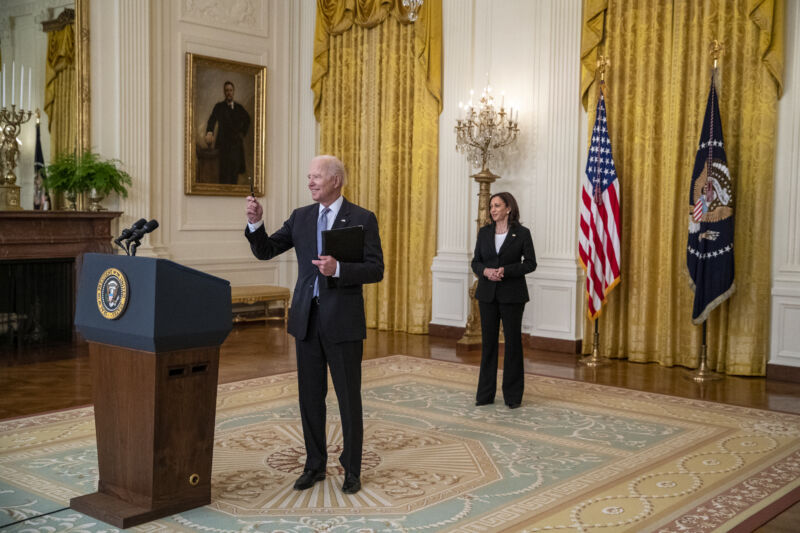-
 chevron_right
chevron_right
Kamala Harris Touts Homeland Security Program Encouraging High School Spying
news.movim.eu / TheIntercept · Thursday, 28 March - 15:57 · 6 minutes
When Vice President Kamala Harris toured the Marjory Stoneman Douglas High School this week, site of the infamous 2018 Parkland, Florida, mass shooting, she pushed for more gun control and called for communities to accept more federal help in stopping school shootings. “I will continue to advocate for what we must do in terms of universal background checks and assault weapons ban” Harris said.
But in a land where gun control is politically impossible , the only tangible help the Biden administration offers schools are resources to conduct better behavioral profiling of students, doing so through a Secret Service center founded to study the psychology of presidential assassins. The push, supported by a bipartisan bill that would strengthen the role of the Department of Homeland Security in school violence, would turn America’s schools into another adjunct of the national security apparatus, a veritable school for spies.
School shootings are indeed an epidemic in America, and Nikolas Cruz, who killed 17 and injured 17 more in Parkland is a tragic example of yet another juvenile who fell through every social service safety net that American society had to offer. He is a poster child for the ease with which mentally ill Americans can acquire guns. But can the Secret Service really help to deal with the scourge, and is it the right agency to do so?
The Secret Service’s National Threat Assessment Center, or NTAC, was created in 1998 to examine threats to the president and security at complex public gatherings. Its focus was expanded a year later to the psychology of school shootings after the Columbine shooting resulted in 15 deaths and horrified the nation. Today, NTAC is “a multidisciplinary team of social science researchers” who assist “law enforcement, schools, government, and other public and private sector organizations to combat the ever-evolving threat of targeted violence,” according to its website .
Over decades, the NTAC has created desks in over a half-dozen Secret Service field offices , staffed by domestic security strategists who conduct school visits and staff training that mostly focus on recognizing “behavioral” traits that its study associates with mass violence. Last year alone, the NTAC touted some 331 training sessions, and it brags that over the last five years, it has trained hundreds of thousands of school administrators and teachers. The demand for its assistance, the Secret Service says, is thanks in part to NTAC publications regarding threats to schools. In its most recent report , “Improving School Safety Through Bystander Reporting,” the NTAC suggests schools encourage programs for students to report suspicious behavior, removing barriers that might impede any such tattletale reporting.
“For reporting programs to be a useful tool for intervention and prevention in K-12 schools, students and other members of a reporting community need to be aware of the importance of reporting, their role in reporting, what to report, and any resources that are available when it comes to reporting threats and other concerns,” the NTAC report says. “Research finds that the fear of being ostracized, or experiencing other forms of retaliation, is a significant barrier to reporting. When students view reporting as ‘snitching,’ they are discouraged from coming forward with their concerns.”
Another NTAC study , “Averting Targeted School Violence: A U.S. Secret Service Analysis of Plots Against Schools,” studied nearly 70 averted attacks against schools, using demographic information to identify school shooters. Attributes tracked by NTAC include history of school discipline, contact with law enforcement, experience being bullied, mental health issues, alcohol and drug use, and the broadly defined psychological trauma “impacted by adverse childhood experiences.”
NTAC stresses that the goal of school monitoring of students and its suggested “see something, say something” practice is successful intervention. It is the same framework originally created to deal with international terrorism and now expanded to thwart domestic “ extremists ” and government “insider threats.”
But are such government programs created to deal with national security threats appropriate when applied to K-12 schools? Not only is NTAC’s list of behavioral threats just as applicable to skateboarders as they are to potential shooters, but lodging the school safety program in the Secret Service, and its Protective Intelligence Division (where NTAC is assigned), also questionably pushes school systems to adopt a national and homeland security curriculum.
“One thing I learned is that threat assessment doesn’t happen in a vacuum,” Bev Baligad, chair of Threat Team Hawaiʻi, said after the Hawaiʻi Threat Assessment Conference last year, where NTAC and the Department of Homeland Security’s National Threat Evaluation and Reporting office made presentations. NTER houses the national “see something, say something” campaign and its own behavioral threat assessment and management program office. “There is a statewide push to build threat assessment capacity on all islands,” Baligad told the conference.
At an NTAC training in Arizona last month, Cochise County School Superintendent Jacqui Clay said , “As the county school superintendent, the reason that we’re doing this is that we have to become a learning community and not be in silos, especially when it comes to school safety.”
“As we come together, the sheriff’s department, the police departments, the (Arizona) Rangers, Border Patrol, superintendents, the community, that’s a deterrent. It’s more of a deterrent because they see we’re working together,” Clay added. “If we all learn the words to the song, then we can sing the song together, better. This is part of the song.” Some of those singing the song are law enforcement agencies without a prior mandate in U.S. schools.
“Messaging should demonstrate to students that there is a big difference between ‘snitching,’ ‘ratting,’ or ‘tattling,’ and seeking help,” a Secret Service guide says .
Last year, a bipartisan group of lawmakers introduced the EAGLES Act to prevent acts of mass violence, a bill that would bolster the NTAC by creating a national program on targeted school violence prevention, while expanding the NTAC’s “research and training on school violence and its dissemination of information on school violence prevention initiatives.”
“Accurate behavioral threat assessments and early interventions are essential to maintaining a safe environment in our schools and communities and preventing another tragedy from taking place,” Sen. Chuck Grassley, R-Iowa, said, in reintroducing the legislation. “The U.S. Secret Service is uniquely equipped to help evaluate these threats, and our bill would enable them to share their tools and expertise with school safety partners across the country.”
Not everyone horrified at the rise of gun violence inside schools has signed on to the mission of reauthorizing and expanding the NTAC as proposed in the EAGLES Act.
The Leadership Conference on Civil and Human Rights wrote of the bill that “Threat assessment, including as proposed in this legislation, poses major risks for and to students, including increased and early contact with law enforcement, overidentification of students … for ‘threatening’ behavior, distraction from the role of easy access to guns in enabling mass shootings in schools and elsewhere, and undermining of students’ rights under civil rights laws, including the Individuals with Disabilities Education Act (IDEA) and Section 504. School safety belongs in the hands of educators, and those trained in child/adolescent development — not law enforcement, and we should never start from a place of viewing some children as threats.”
The Consortium for Constituents With Disabilities followed suit, adding, “The U.S. Secret Service is part of the U.S. Department of Homeland Security — a border security and counterterrorism agency. This agency has no expertise in student behavior or child development. Nonetheless, they would develop best practices and train school staff on threat assessment, treating children as potential terrorists.”
The post Kamala Harris Touts Homeland Security Program Encouraging High School Spying appeared first on The Intercept .










